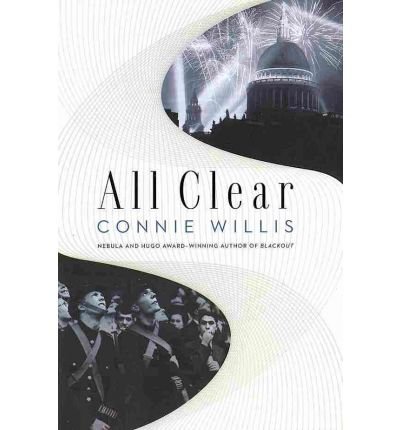All Clear
The delights of Blackout and All Clear – which are, despite appearances, one novel – are hard to describe in a small space. The revivified history is beautiful. Connie Willis has always loved England and especially London during the Blitz, and she delivers here as rich and wide a picture of the time as anything I’ve ever read. She doesn’t merely do research, she inhabits it. In a hundred small vignettes she captures the terrors and the wonders of a range of characters across English society – Dunkirk, the bomb shelters, evacuated children, firewatchers, the packed trains, Agatha Christie, Saint Paul’s dome rising indomitable above the clouds and flames, the terrible food and the bad jokes, the glorious celebration in Trafalgar Square on V-E Day. She makes the V1s audible and the bombings immediate, and especially she celebrates the desperate heroism of ordinary people enduring the unbearable.
Beyond that, Willis’s trademark approach, time travel, lets her stack all this together with a minimum of fill that conveys the emotional density of the event. Also, it allows her to pursue dazzling games with time. People die before they’re born, remember events before they happen; there’s an astonishing temporal knot at the end that resolves the story that only Willis could bring off. Throughout the novel images and themes and scenes recur in startling juxtaposition, meanings change and loop. Blackout / All Clear is as big a book as there’s been all year, encompassing one of the greatest events in history, paying homage to the human spirit, and demonstrating Connie Willis’s mastery in a fabulous read.
For inexplicable reasons Spectra decided to publish this lengthy work as two books, and months apart. The novel deserved better, and should be read as one.










